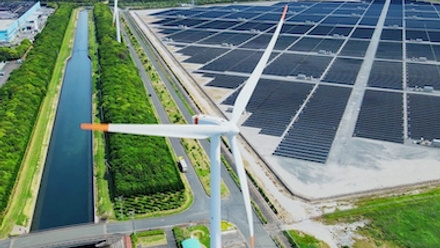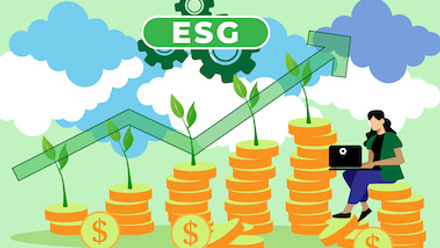Rewards after the pandemic: a draft framework for reviewing and renewing your reward strategy

The need for review
The current situation is undoubtedly more complex and difficult than many of us will have faced in our professional lives, with huge uncertainties evident, as well as the immediate and new questions and pressures. How is the furlough scheme changing? Will employees be able to travel into work? Where do we source hand sanitiser? The list goes on.
There will be understandable pressures on the practical return to work to side-line the ‘big’, most critical and difficult reward issues and agendas.
But my ‘Rewards after the Pandemic’ (PAR) group of like-minded reward professionals, policy makers and researchers, who have been meeting virtually over the past month, are all agreed there is great value in stepping back now and looking at the situation strategically for the future.
Our aim is to support HR professionals, their employers and their leaders to have these vitally important, if often challenging discussions. We want to help them think into an uncertain medium and longer-term, identify and link important reward issues, raise key questions and draw out the implications, to consider future alternatives, choices and improvements to reward strategy.
Four strategic reward review questions
The strategic reward framework I originally developed with my friends and colleagues Michael Armstrong and Peter Reilly to review, assess and reform reward practices in any employer, essentially boils down to three questions:
- What are our reward principles, goals, values and success criteria – what do we want our reward practices to achieve, what does ‘good’ look like?
- How well are our current reward policies and practices delivering these principles in practice – what are their strengths and weaknesses?
- What reward changes have the potential to improve the delivery of the principles and which are the ones that we want adopt and implement?
In our current and much-changed situation, with more than one-fifth of employees now effectively on the government’s payroll through the Job Retention Scheme, and with a variety of other significant changes having been made, compulsorily and voluntarily, to support employees through the crisis, we must add a fourth critical question:
4. What have we changed and what have we learned from this crisis from a reward and recognition perspective?
- How has it challenged our thinking and our previous/current reward approaches?
- What temporary changes have we made and should we revert to the status quo?
- Or do we need to continue these changes into the future? Or do we instead need to adopt something totally different and new?
A framework of reward principles
In its recovery plan, the government has set out some overarching principles to guide their progressive economic and social reopening, and to adapt to this unpredictable environment as it evolves. These include that government policy will be:
- evidence-based and ‘informed by the science’;
- that a principle of fairness should guide government policy and that ‘the government will, at all times, endeavour to be fair to all people and groups’ (the virus and its economic effects have, as the latest ONS data showed, disproportionately impacted on the young, the low paid/low skilled and women);
- and that government will be transparent in its policies and in ‘the judgements it is making and the basis for them’.
Those principles – fairness, transparency and evidence-based – actually aren’t bad ones to use to review the effectiveness of and need for changes and improvements going forward in your pay and reward policies and practices.
Our PAR group feels that, if not always changing their traditional ‘holy trinity’ reward principles of recruit/retain/motivate, in many organisations the last month will certainly have shifted the priorities in and perceptions of what ‘good practice’ looks like.
In particular, recent weeks have highlighted the importance of three areas:
- fairness and relative contributions and rewards;
- a common identity and experience, and wish for reward to reinforce the fact that we really are, as the chief executive of BP put in a memo to his employees at the start of the crisis, ‘all in this together’;
- workforce security, health and wellbeing.
It is in these three areas that we believe that the greatest challenges have been posed by the pandemic to contemporary reward approaches and models that have become prevalent in the UK economy over the past decade and more, with:
- significant and increasingly differentiated executive rewards;
- growing numbers of a ‘precariat’ of lower-skilled and lower-paid employees, workers and contractors;
- growing evidence of absenteeism related to mental ill-health and stress, likely to have been intensified by the crisis; as well as
- a lack of financial wellbeing driven by the decline of personal savings and growth of indebtedness; and
- a common shift in the emphasis in corporate benefits provision away from collective security to personal choice and flexibility.
A framework of reward questions highlighted by the pandemic
Some of the more specific questions you may want to consider in reviewing your current and crisis-response-induced reward policies and practices, against the three principles of fairness, collective contribution and security, include:
1. How fair are our current reward policies; and how do we better deliver fairness in the future?
- How well do we reward and recognise the contribution of our keyworkers and lower paid staff? Are we fairly recognising their contribution and skills?
- Do we provide pay and career progression opportunities to everybody in our workforce? If not, why not?
- Do we have job evaluation and pay structures to ensure fair and consistent pay decisions are made? How well do they work, do they need improvement and reform?
- How do we deliver market-competitive rates of pay while also ensuring that men and women are paid equally, rather than importing market-biases and premia from the external market?
- What pay gaps between different groups and levels do we have in the organisation? How big are they and what has caused them? How, after this experience, do we feel about them and are we doing enough to address them? What else could/should we be doing?
- How in future do we build a fairer rewards ‘deal’, with better pay, progression and security for our keyworkers, low-paid and gig workers? How do we fund any higher costs resulting?
- How can we ensure everyone, of whatever background, colour, gender, orientation etc. has an equal opportunity to progress their career and their pay, to develop their talents to the full and be rewarded commensurately?
2. How well do we reward and recognise the contribution of staff at all levels and in all roles in our organisation? How can we improve on that?
- How appropriate are our current internal base pay and total cash differentials?
- Do all staff currently have the opportunity to share in our collective achievements and success? What vehicles do we currently operate? Who participates in bonus and incentive plans and who doesn’t?
- Do we need to let all/more of our employees share in our success and consider the introduction of all-employee share plans and cash gainsharing and profit sharing plans etc?
- With executives having taken voluntary pay reductions, should we be using this as an opportunity to question our executive pay structuring? How might it best be refashioned to support a wider stakeholder agenda? Do we continue with the previous model of executive incentivisation, or do we need to change it? Do we need to change participation, designs, measures, timescales etc?
3. How well do our current reward policies support the security, health and wellbeing of our workforce? How can we better address these fundamental human needs in future?
- Do we have the right balance of business flexibility and employee/worker security in our staffing and reward models?
- With illness and death having become a far more widespread experience in the past three months, how have our benefits and support structures (life cover, EAP etc) performed in the pandemic?
- How have we had to enhance and add to these provisions in recent weeks? Are their aspects of the new and enhanced support we have been providing we want to continue permanently?
- How can we improve the security and wellbeing of all of our employees, especially the lowest paid. Do we need new benefits and a higher minimum standard of security for all of our employees?
Seizing the opportunities for rewards after the pandemic
Our future rewards group will be meeting to review and substantially improve this, my first attempt at these key questions, in a few days’ time. In the meantime, please send me your reactions, thoughts, criticisms and additions to help to refine and improve this framework, which we will then finalise and disseminate as widely and freely as possible.
The key question for all of us HR and reward professionals moving out of this pandemic remains that which Aidan Crossey put to our group at our first meeting last month: ‘How can we ensure it is genuinely ‘Never Again’? How can we avoid a knee-jerk return to the status quo, (and) seize the opportunity to create ‘a more equitable, compassionate and collective’ approach to reward and people management more generally after this crisis?
So how can we? And what are you going to do about re-building that better future now?
The author is Dr Duncan Brown, independent rewards adviser and researcher, and visiting Prof University of Greenwich.
[email protected]






